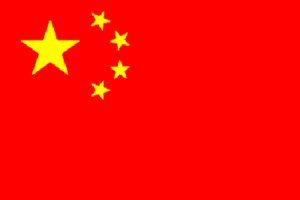The China Bubble
 Quickly: Conventional wisdom glosses over China’s limitations and problems.
Quickly: Conventional wisdom glosses over China’s limitations and problems.
Roger Cohen’s starry-eyed China tribute in the New York Times is emblematic of the runaway euphoria surrounding that emerging economy. Threat to America…threat to Asia…ready to overtake Europe in the next 10 years…exploding – the gold rush place to be…450 million cell phones…becoming highly creative and innovative…the new model…the future.
Much of the China hysteria feels like the Japan fad from the late 1980s. In that era the press and the experts babbled about the Japan threat, complete with how that country would beat the West in quality, cost, business thinking, discipline, worker productivity, creativity, cars and chips. Japanese companies were buying U.S. companies, the Japanese economy was booming, square feet of Tokyo real-estate were priced higher than middle class American homes. The next century was going to the Japanese century, not the U.S. century.
Oops. So beware purported threats from the East without full knowledge and common sense analysis of all of the factors at work. Such as…
We’re talking about a communist nation here sports fans. A vibrant, adjusting, fast-growing, free economy cannot exist in a society that is governed by a totalitarian regime. Government-controlled economies ultimately breed bad business decisions, poor application of capital, and the miss-match of people to leadership positions. Capitalism grows best in the rich soil of democracy — something the China cheerleaders at GM and Goldman Sachs have conveniently forgotten.
Free economies run on transparent and trusted information. That’s hard to attain when bureaucrats are filtering the Web. According to a Forrester 2006 survey, Chinese consumers have drastically lower trust in TV, newspapers, and the Web than consumers in the U.S., Japan, South Korea, Australia, and India.
Yes, it’s 1.2 billion people. But it’s truly only 300 million people in the eastern coastal metropolis’ that are driving the phenomenal growth in the country. 500 million peasants in the west are untouched by the newfound prosperity. Chinese history is punctuated every 150 years or so with a peasant revolution.
Then you have half of bank loans non-performing (shades of Japan), a floating, but controlled currency engineered to keep exports flowing, an immature rule of law, an incomplete infrastructure (sure you could sell 200 million PCs in China, but half of them won’t have power), and the persistence of bribery and other trust-eroding business practices.
Don’t get me wrong, I’m a believer in China’s emergence as a world power. But I am skeptical that the country can 1) sustain its present trajectory without near term trips and falls, and 2) grow to play at the same level as the U.S. and the EU unless it embraces major structural changes – primarily political.
So let’s not lose our heads. China up? Yes. China as number one or even number two (after the EU) within 20 years? No.
